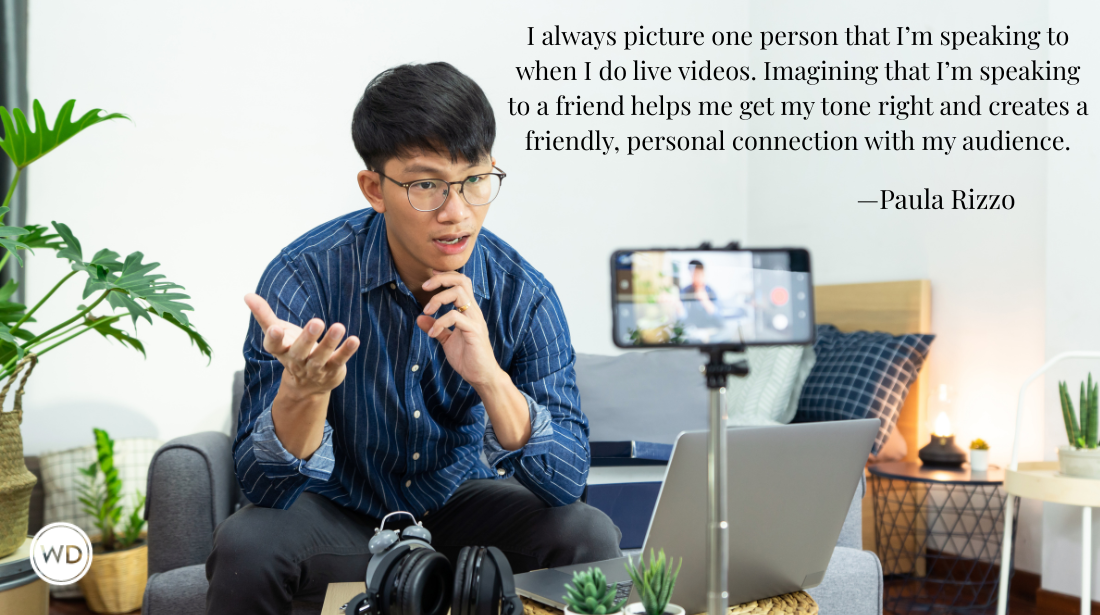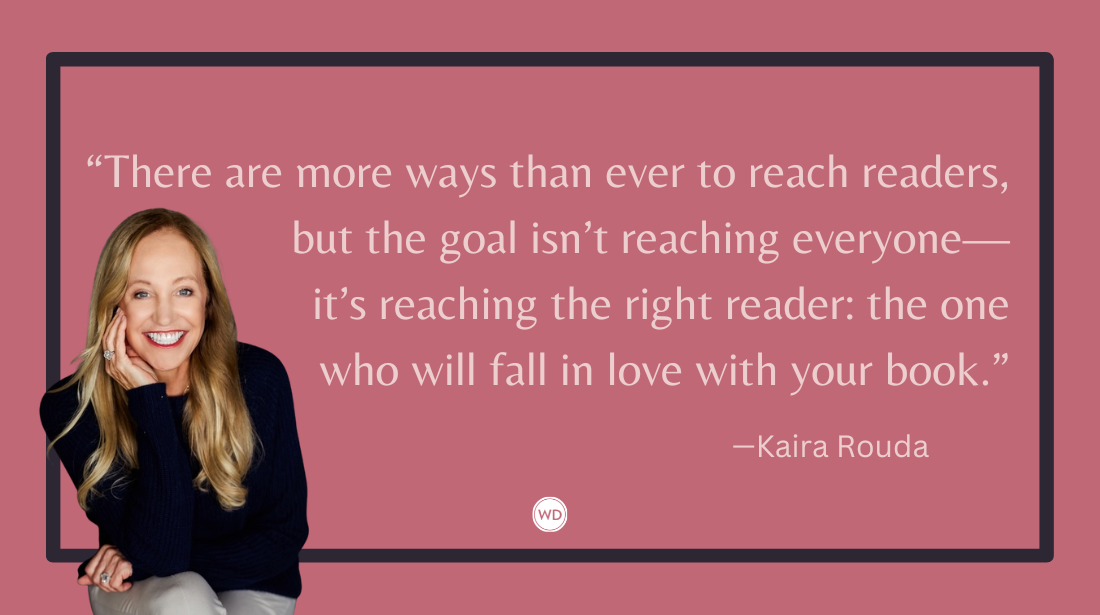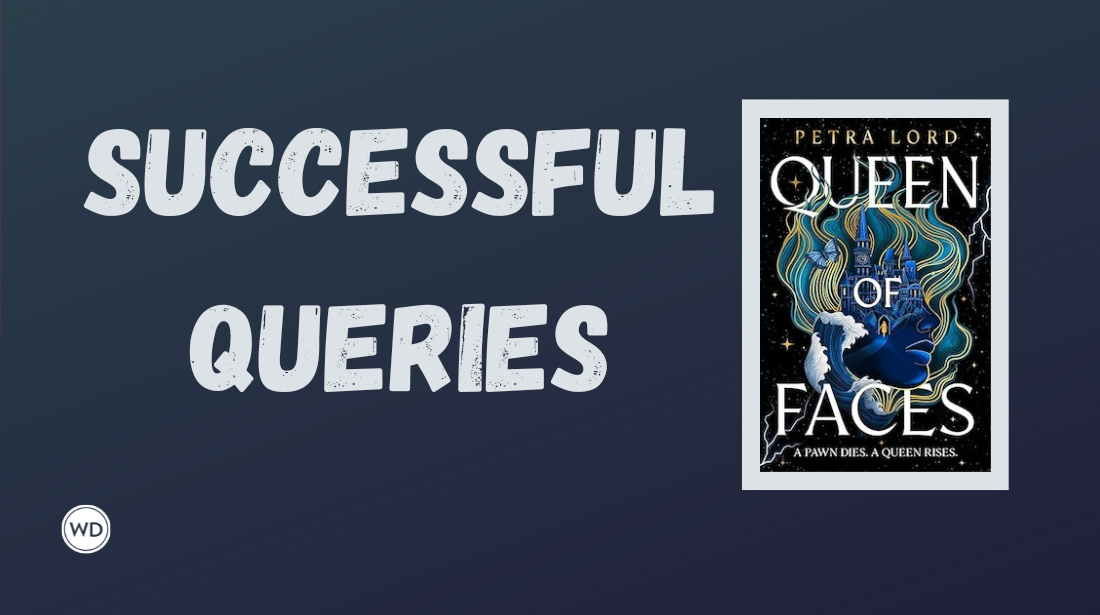What I Didn’t Know About Book Awards for Independent Authors
Independent author Sandra Schnakenburg shares what she didn’t know about book awards and shares lessons for other indie authors.
My most recent Facebook post read: “I never dreamed I’d win a single award, yet this is the sixth book award for The Housekeeper’s Secret.” I am utterly grateful for these recognitions.
It was an exciting day when my debut memoir was released on December 3, 2024. I had no idea how the world would receive my story. All I knew was that, as of the release date, it was out in the world—and there was no taking it back. This was daunting at first, but eventually, I fully embraced every word and was thrilled to talk about my story. Letting go of the fear of judgment was absolutely liberating. I had released the truth and owned it.
George Addair quoted, "Everything you ever wanted is on the other side of fear." Now I understand that once I overcame the fear of what others might think, the opposite of fear emerged: I began receiving positive feedback and kudos. Some readers even wanted to know when my next story was coming out! While I didn’t expect such enthusiastic responses, of course, there were a few mixed reviews. But I reminded myself—even New York Times bestsellers don’t receive perfect scores.
My publisher, She Writes Press, a hybrid independent publisher, advised authors to apply for book awards. As a new author, I followed their guidance and submitted to a shortlist of awards. I didn’t know much about the process, only that I dreamed my book might one day wear one of those shiny stickers I’d seen on the covers of books I had purchased and admired.
She Writes Press is considered an independent publisher, unlike the Big Five publishing houses. In the indie world, validation doesn’t come with a major publishing contract—it often arrives in the form of a seal, a certificate, or an email that reads, "Congratulations, you’re a finalist." For independent authors navigating a crowded and often confusing publishing landscape, book awards offer something far more valuable than bragging rights: They offer credibility, visibility, and a renewed sense of purpose.
Why Book Awards Matter More Than Ever
Traditional publishers benefit from brand recognition as a shorthand for quality. Independent authors don’t have that luxury. Readers, media, bookstores, and libraries may hesitate to take a chance on a book without that traditional vetting. A respected book award can serve as a proxy—an external validation that says, “This is worth your time.”
One month after release, I received an email congratulating me on winning the Gold Book Award from the Nonfiction Authors Association for my memoir. The message read, “Once in a decade, a memoir arrives that changes not just how we read, but how we see. The Housekeeper’s Secret is such a book.” I was so excited I could barely breathe. The email included comments from multiple judges that touched me deeply. At that moment, I didn’t know the difference between one award and the next—but I knew winning Gold was something good.
Winning helped my story in several ways:
- Stand out in a saturated market
- Gain credibility with bookstores and libraries
- Attract media attention
- Bolster marketing and social media efforts
- Feel reenergized about my work
But as many authors soon discover, not all awards are created equal—and some of the most important truths about the award world are the ones authors learn too late.
What Authors Don’t Know (But Should)
- Book awards are a business. Nearly all independent book awards are pay-to-play. Submission fees can range from $75 to $150 or more per category. This doesn’t make them illegitimate, but authors should be strategic. Does the award offer marketing support, media exposure, or distribution benefits?
- Winning doesn’t guarantee sales. Some awards offer little more than a badge. Others, like the IPPYs or Foreword INDIES, can open doors—but it’s still up to the author to leverage the recognition.
- Timing matters. Many awards require books to be published within the past 12 to 18 months. Missing this window may render your book ineligible.
- Genre categories vary. Some lump memoirs with biography; others have niche categories. Research past winners to improve your odds.
- Judging criteria can be opaque. Few competitions offer feedback. Was it the cover? The pacing? The politics? You may never know.
- You still need a great book. Award-winning indie books are typically professionally edited, well-designed, and compelling.
Since that first win, The Housekeeper’s Secret has now been out for six months, and I’m grateful it has received:
- Gold Winner of the Best Memoir 2025, IBPA (Benjamin Franklin Award)
- Silver Winner of the Best Memoir 2025, IPPY Award
- Gold Award, Nonfiction Book Awards
- Best Memoir of 2024, Firebird Awards
- Finalist, Eric Hoffer First Horizon Award
- Honorable Mention, Eric Hoffer Grand Prize Finalist
My point is this: Authors never truly know how their story will be received. There are many variables, and in some ways, it’s a gamble. But one thing is certain—you gain nothing if you don’t apply.
Once I let go of the fear of judgment, the story began to take on its own agency. It moved through the world like ripples across a lake. It was read, reviewed, judged, embraced, and even challenged. That is the power of releasing a story.
So, Which Awards Matter?
Top-Tier Independent Book Awards
- IBPA Benjamin Franklin Awards
- Judged by librarians, bookstore owners, and professionals
- Considered the gold standard in indie publishing
- Foreword INDIES Book of the Year Awards
- Run by Foreword Reviews
- Prestigious, especially in trade and library markets
- Next Generation Indie Book Awards
- Offers cash prizes and a NYC gala
- Sometimes called the “Sundance of indie publishing”
- IPPY Awards
- One of the longest-running indie book awards
- Over 100 categories, which helps accessibility
Mid-Tier Awards
- Reader Views Literary Awards
- Strong for blog coverage and reader credibility
- Readers’ Favorite Awards
- Accessible, widely marketed
- Offers editorial reviews
- Eric Hoffer Awards
- Honors literary merit, often respected in academic circles
- National Indie Excellence Awards
- Offers wide category selection
- Helpful for author branding
Niche & Notable Mentions
- Chanticleer International Book Awards
- American Book Fest’s International Book Awards
- Feathered Quill Book Awards
- IndieReader Discovery Awards
- Book Excellence Awards
Remember, even top awards won’t move the needle unless they’re actively leveraged through media, social proof, and author appearances. Multiple wins across respected competitions can exponentially build trust and reader interest.
The Real Prize
Book awards are not a shortcut to fame. They are a way to honor the journey, affirm the hard work, and offer a moment of validation. For indie authors like myself, they are a meaningful pause in the marathon of publishing—a moment to breathe, reflect, and believe.
For those considering a second book, multiple awards may also spark interest from traditional publishers. For me, yes, I’m writing again. But I keep my focus on the story, not the stickers. This path is about the art, first and foremost.
In a world where everyone can publish, it’s the authors who keep showing up, striving, and refining their voice who rise above the noise. Book awards help sustain that momentum. I encourage every indie author to apply, because until your story is judged by others, you won’t truly know how far it can go.
To all the authors navigating this journey: May your story find its readers, and may you find your well-earned moment to shine.
Check out Sandra Schnakenburg's The Housekeeping Secret here:
(WD uses affiliate links)









